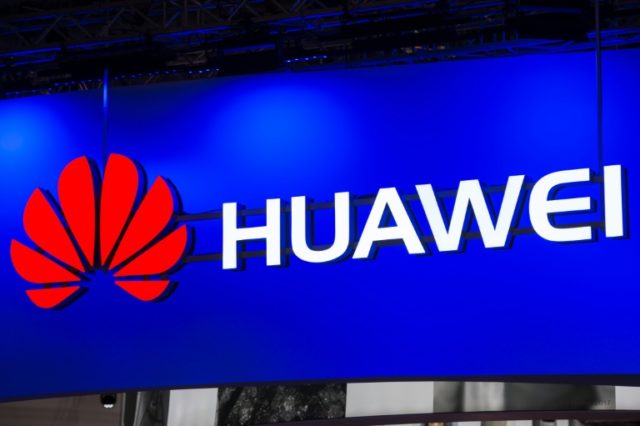Shenzhen (China) (AFP) – Chinese telecom giant Huawei saw it profits rebound in 2017, helped by strong smartphone sales as it ramps up R&D spending despite suffering setbacks in its US ambitions.
The third-biggest smartphone manufacturer in the world behind Samsung and Apple, Huawei Friday announced net profit climbed 28 percent last year to 47.5 billion yuan ($7.3 billion), recovering from a near-stagnant 2016.
The group said it benefited from strong smartphone sales despite fierce competition in China and elsewhere, with 153 million units sold and a 32 percent jump in revenues from its consumer goods business.
Huawei, which is also one of the world’s leading telecommunications equipment suppliers, however saw its total turnover falter, with growth halved to 15.7 percent for a total of 604 billion yuan.
Despite this, the Shenzhen-based firm last year increased its research and development spending by 17 percent to $13.8 billion, approaching the level of expenditure by US giants Amazon and Alphabet, Google’s parent.
“Opportunities and challenges are popping up faster than ever before, and non-stop open innovation is the only way we can keep ahead of the game,” said chairman Ken Hu, referring to the focus on artificial intelligence, cloud computing and 5G.
Facing competition from Scandinavian firms Ericsson and Nokia, Huawei is going all out for 5G, which promises blazingly-fast wireless internet with the first commercial deployments expected this year.
Huawei, which is already working with European operators, also promised to launch a 5G-compatible smartphone from 2019.
“Over the next 10 years, Huawei will continue to increase investment in technological innovation, investing more than $10 billion back into R&D every year,” and even up to $20 billion, Hu told reporters in Shenzhen.
– US concerns –
Huawei’s strong investment in R&D comes amid growing concerns in the United States over Chinese competitors in telecoms, especially 5G.
Before President Donald Trump blocked a proposed takeover of Qualcomm by Singapore-based Broadcom, citing “national security” concerns, the US Treasury Department had warned that a takeover might hurt US leadership in 5G.
Huawei itself has suffered stinging commercial setbacks in the United States.
Its sales there are largely paralysed against a background of concerns by US authorities that its equipment could be used for espionage.
The founder of the group is a former engineer in the People’s Liberation Army and this has led to concerns of close links with the Chinese military and government, which Huawei has consistently denied.
A partnership between Huawei and American operator AT&T to sell smartphones in the US fell apart in January.
“For one reason or another unfortunately we are not able to do business over there and we feel sorry for it,” said Hu.
“The difficulties in the US market will make us to work harder to seek growth from other regions around the world,” he added.
“We will invest more in innovation and will have more cooperation with other business partners globally.”
While the group’s margins are shrinking in the highly competitive smartphone business, in its main market China, Huawei returned to the top spot with 20.4 percent of market share, but with domestic newcomers Oppo, Vivo and Xiaomi snapping at its heels, according to IDC.

COMMENTS
Please let us know if you're having issues with commenting.